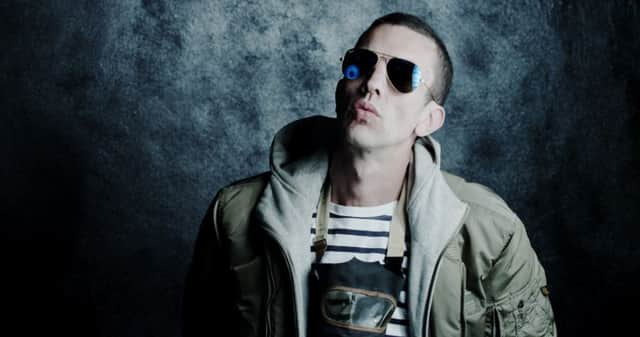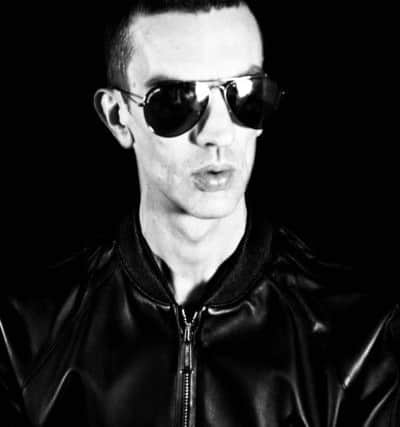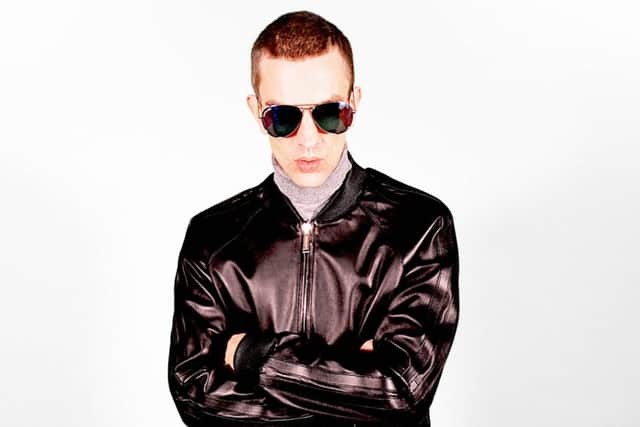Music interview '“ Richard Ashcroft: '˜I'm probably too rough at the edges, too emotional, too real for this business'


As front man of The Verve he became one of Britpop’s most recognisable faces when their third album, Urban Hymns, found a place in ten million homes. Although the band broke up shortly afterwards the singer’s success continued with his debut solo album, Alone With Everybody, which was another UK Number One.
Such acclaim proved hard to maintain over the next decade, however – and after an ill-fated reunion with The Verve and a much misunderstood rock/soul/hip-hop collaboration – credited to RPA and the United Nations of Sound – he walked away from the music business for five years, re-emerging only in 2016 with the considerably more warmly received These People.
Advertisement
Hide AdAdvertisement
Hide AdAs he gears up for a short string of British dates – including the First Direct Arena in Leeds – he appears in reflective mood, admitting he felt “wounded” by the reaction to the United Nations of Sound record given how much creative energy he’d invested in the project. “It was a soul album really but I wanted to make that sort of statement that I can go to New York and work with a hip-hop producer – No I.D. – work with a very eclectic bunch of musicians, bring rock ’n’ roll into hip-hop and the fact that in my own country people were just seemingly unwilling to accept that as an adventure, as a piece of music or whatever, I found that difficult.
“A few years later I was stopped by some real cool girl who was being filmed for some video, I was outside a shop in London and she named a song off the album and said ‘All my gang we love that from the United Nations of Sound’ so I felt vindicated in that way that actually some people get where I was coming from and it still continues to this day.
“I still dream of whatever rock ’n’ roll is fusing with the spirit of hip-hop and soul and being this one thing one day, this unified thing that all people that like different types of stuff can enjoy because it has that essence. I think that has happened to a certain extent but I think what happened was everything became very watered down. I’m probably too rough at the edges, too emotional, too real for this business as it stands at the moment – and even back then.
“What was happening was corporations were understanding – the very few that still existed – that mavericks are all right for a certain point, and they’ve made the music industry billions of dollars over the years. The outsiders, the ones who still want to be popular but want to do it on their terms what they found is they can almost get doppelgängers to put in their place who will do a similar thing but they won’t rock the boat.”
Advertisement
Hide AdAdvertisement
Hide AdThe 45-year-old says he never stopped writing during his time away from the music business – “The album in itself, one version, was finished two and a half or three years ago,” he says – but realising his full vision for it took longer.


The record’s main influences, he says, are “that most of us as people have an internal conflict, there was also [conflict] this going on on the outside at all times – and also how much of our realities are based on almost Orwellian propaganda than fact.
“I was stimulated by that, that sense of our own inner battles and the fact that out there seems another force at work intent on dividing us, and perhaps losing our sense of humanity and what joins us together.”
What he’s seen from touring tells him our common bonds are stronger than some would suggest. “Even in the last year seeing people jumping up and down to Hold On, one of my new songs, completely diverse, different cultures, it’s just obvious to me, I have experienced this and I’ve had it reinforced after being away for five years then to go to Tokyo or Buenos Aires, that I’d never played before, and sell out a theatre and have it bouncing. You can see it online where they’re chanting ‘ole, ole’, it’s incredible.
Advertisement
Hide AdAdvertisement
Hide Ad“That for me is my medicine for the concerns that the rest of it is falling apart, in a way. For me as a musician the fact that you can cut through different languages and cultures proves that force, or whoever is intent on breaking that down, actually may never win because our ability to communicate and be as one – or be in a room and enjoy a show or leave our prejudices at the door a second – is huge. The thing with music, and particularly a concert, is it should be now more than ever that we throw away all that and we just embrace the music and our common thing, our pain and our dreams and all that, should be wrapped up in that concert.


“I want to entertain people but I want to entertain them in a way that someone like Edith Piaf entertained people. She didn’t just give them sugar, we’ve all got enough sugar, we can get sugar when we turn on anything else. I think there’s a hunger right now for people who want to see things and listen to things or feel part of stuff that isn’t part of that never-ending conveyor belt pacifiers and sleeper agents.”
Last year Ashcroft declared he still thought there was an opportunity for him to be Britain’s biggest solo artist. He qualifies that remark today.
“When I say biggest I suppose that is something that’s nigh on impossible when you’re dealing with someone like Ed Sheeran sales-wise, but when we’re looking in the future at influence... Sometimes you can truly be ahead of your time or out of your time. By being out of time though, unlike someone trying to catch on to the coat tails of something that’s already gone, that means you’re being creative as well, that means that you’re leading, not just following. You’re out of step, you’re on your own lane.
Advertisement
Hide AdAdvertisement
Hide Ad“So, in the sense of carrying on my creativity over the next ten years I truly believe that given the right circumstances and, God willing, health and everything else, that I can still be at the forefront of taking whatever I do into this next decade.”


But it will not be by “being one of the few people who are by making records that are like some geopolitical statements”, he says. “I’ve got a big problem with actors and musicians who’ve jumped on whatever political bandwagon over the last few years, I think they’ve patronised large swathes of the population, so quite honestly I’m out of that paradigm. I’m not a preacher and I’m not going to make some album preaching to people. What I want to do though is reflect my life, me, my internal thing and I think my internal thing is not that much different to anyone else’s and the repercussions of the external things that are going on I feel as well.
“My son was very close to Westminster the other day [when the terror attack happened], it’s there for us all through experiences and we deal with that. We’re all dealing with it. I’ve been dealing with what it’s like to be a father since the day my first son was born, it’s an unbelievable journey and responsibility, but you can’t help for stuff to come into your music and I think people respond to that because they know it’s not just a bunch of song writers in a room trying to write something they think [will appeal].
“I was thinking about this the other day. When I wrote the songs for, say, Urban Hymns, when we played stadiums or arenas or we headlined festivals, that was because the songs were so strong. We weren’t playing those sizes of arenas at the time when I was writing the songs, they weren’t written for a call and response and ‘this is what will happen when we get to this bit, the crowd will all go woo, woo, woo or whatever’, and that’s the fundamental shift in the way, that people write songs or think about that – when you get to a certain size as an artist you start writing songs for an arena crowd. Most of the tunes that we wrote weren’t written for arenas, they were written because they were just great songs and then a lot of people enjoyed them and that means we sold out an arena. It’s a different way of looking at it.
Advertisement
Hide AdAdvertisement
Hide Ad“That’s what I think is unique about these gigs that I’m going to do in the UK – they’re going to be song after song after song and what it does is it unites my whole writing career from On Your Own and History through all of Urban Hymns, Song For Lovers and my first few solo albums, all the way up to These People. It also includes work I did with DJ Shadow. You get a flavour for someone who’s been doing this for 20 years or whatever.”
Richard Ashcroft plays at First Direct Arena on April 22. richardashcroft.com